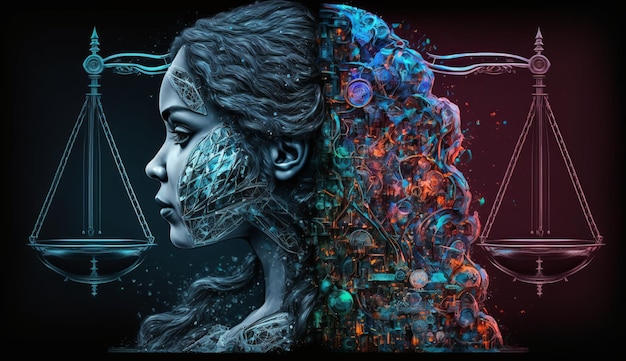“The Odyssey,” one of the most celebrated epics of antiquity, continues to inspire fresh interpretations and adaptations, showcasing its enduring relevance into the modern era. With its rich storytelling and complex characters, Homer’s Odyssey has served as a foundational text for countless adaptations, including a recent translation by Daniel Mendelsohn and an eagerly anticipated film directed by Christopher Nolan. This tale of resilience and adventure echoes through the ages, presenting profound themes of identity and the human experience. Its intricately woven plot provides fertile ground for a deep Odyssey character analysis, inviting readers to explore the nuances of its iconic protagonist, Odysseus. As this classic story captivates new audiences, discussions surrounding the best “The Odyssey” translation take on renewed significance, ensuring that its legacy endures for generations to come.
The epic journey found in “The Odyssey” has captivated readers and viewers alike through various forms of storytelling, highlighting its importance in cultural history. This classic narrative, attributed to the ancient poet Homer, explores the trials faced by its central figure, Odysseus, and the intricate relationships with figures such as Penelope and Telemachus. As adaptations of this narrative unfold in theatre and cinema, they breathe new life into age-old themes of longing, loyalty, and cleverness. Analyzing key characters and their motivations offers insight into the mythological dimensions of the tale, allowing audiences to engage with the material on multiple levels. This multifaceted approach to the epic encourages both seasoned scholars and newcomers to delve into the rich tapestry of its storytelling.
The Allure of Homer’s Odyssey
Homer’s “Odyssey” is a timeless epic that continues to resonate with audiences, showcasing its profound influence on literature and culture through the ages. The poem’s complex narrative follows Odysseus, a multifaceted hero whose adventures encapsulate themes of perseverance and cunning. Scholars believe that the story, steeped in historical and mythological contexts, represents more than just a journey; it is a rich tapestry woven from the threads of human experience, desire, and the quest for identity.
As we delve into the depths of this classical work, it becomes clear why various adaptations and translations have surfaced over centuries. Each iteration, from Daniel Mendelsohn’s recent translation to historical versions by George Chapman and Robert Fagles, brings unique perspectives that highlight different facets of Odysseus’ character and his trials. The ongoing interest in Homer’s Odyssey reinforces its status as a cornerstone of literature, inviting readers to explore the nuances of fate, fate, and the evolving understanding of heroism.
The Odyssey Translations: A Legacy of Interpretations
The evolution of translations of “The Odyssey” serves as a testament to its enduring significance. Starting with the first complete English translation by George Chapman in 1616, to contemporary versions enabling accessibility, each translator has sought to capture the essence of Homer’s original Greek text. Notably, Emily Wilson’s translation has garnered acclaim not only for its poetic beauty but also for its modern sensibilities, bringing forth a fresh understanding of Odysseus’ character, particularly in the treatment of themes such as loyalty and betrayal.
Moreover, with over 100 translations available, each offers a distinct lens through which to view this epic narrative. Translators like Richmond Lattimore and Robert Fitzgerald have enriched the literary landscape with their interpretations, emphasizing the significance of their stylistic choices in rendering Odysseus’ adventures relatable to contemporary readers. This dynamic interplay between the original text and its translations ensures that “The Odyssey” remains vibrant and relevant, bridging the historical gap between ancient and modern audiences.
Adapting The Odyssey for Modern Audiences
The act of adapting “The Odyssey” into various media forms, such as stage productions and films, highlights its versatility and enduring appeal. One of the most buzzed-about adaptations is the upcoming film directed by Christopher Nolan, renowned for his deep character explorations and intricate storytelling. This adaptation promises to delve into the psyche of Odysseus, highlighting the themes of identity and the duality of heroism, while also drawing on cinematic techniques that resonate with modern viewers.
Stage adaptations, like the recent American Repertory Theater production, similarly breathe new life into this ancient tale, showcasing the timeless struggles of its characters. Such performances not only engage with the fundamental conflicts inherent in the narrative but also invite audiences to reflect on their journeys of self-discovery. By reimagining figures like Odysseus and Penelope within contemporary contexts, adaptations foster a deeper appreciation for the narrative’s relevance, allowing the themes of loyalty, ingenuity, and the search for home to resonate powerfully with today’s audience.
Odyssey Character Analysis: Flaws and Strengths
Exploring the characters within “The Odyssey” reveals a tapestry of human flaws and strengths, with Odysseus standing at the center as both an epic hero and a deeply flawed individual. His cunning and resourcefulness are traits that allow him to navigate through the treacherous waters of his journey, yet they also reveal his vulnerabilities, such as his pride and tendency for vengeance. This complexity makes Odysseus a quintessential trickster figure, challenging traditional notions of heroism and prompting readers to consider the moral ambiguities present in his decisions.
Penelope, in contrast, embodies resilience and intelligence, often matching Odysseus’ cunning in her own right. Her eloquent storytelling and strategic thinking underscore her role not just as a passive waiting wife but as an active participant in the narrative. By analyzing her character and the dynamics between her and Odysseus, readers are invited to dissect gender roles and the depth of emotional intelligence in relationships. This character analysis showcases that the strength of “The Odyssey” lies not only in its adventures but also in its nuanced exploration of human nature.
Journey of the Soul: Themes in The Odyssey
At its core, Homer’s “Odyssey” transcends the mere adventures of Odysseus, presenting a profound exploration of the ‘journey of the soul.’ This theme manifests through the hero’s trials, each of which serves as a metaphor for self-discovery and personal growth. As Odysseus encounters various challenges, from the seduction of the Sirens to the trials of his homecoming, readers are compelled to reflect on their paths and the obstacles they face in their own lives.
The journey is not merely physical; it represents the internal struggles that define the human experience. Ultimately, engaging with “The Odyssey” invites readers to embark on their own soul-searching quests, fostering a rich tapestry of introspection regarding identity, purpose, and the meaning of home. This thematic richness ensures that each new generation finds relevance in the epic, underscoring the timeless nature of its lessons.
The Impact of The Odyssey on Modern Literature
The legacy of “The Odyssey” extends far beyond its ancient origins, shaping the landscape of modern literature and storytelling. Many contemporary authors cite Homer’s epic as a significant influence, drawing upon its themes, archetypes, and narrative structures in their own works. The character of Odysseus, for example, continues to inspire modern protagonists who grapple with complex moral dilemmas and personal quests, echoing the journeys laid out in Homer’s text.
Furthermore, the motifs of adventure and the hero’s journey have permeated various genres, from fantasy to science fiction. By weaving the lessons from “The Odyssey” into contemporary narratives, writers not only pay homage to Homer’s influence but also illustrate the universality of the experiences portrayed in the epic. The adaptability of these themes ensures that new forms of storytelling remain rooted in the rich tradition of Greek literature, reflecting on the ongoing quest for meaning that defines humanity.
Exploring Gender Dynamics in The Odyssey
Gender dynamics play a significant role in shaping the narrative of “The Odyssey,” particularly through the characters of Odysseus, Penelope, and the various female figures encountered throughout the epic. Penelope emerges as a symbol of fidelity and intelligence, navigating the pressures of suitors and her husband’s long absence. Her strategic use of language and deception highlights her agency, challenging readers to rethink traditional gender roles within the context of a male-dominated narrative.
Moreover, the depiction of other female characters, such as Circe and Calypso, who exert their own forms of power and influence over Odysseus, further complicates the gender dynamics at play. The interplay between these characters reveals the multifaceted nature of female personalities and their critical roles in Odysseus’ journey. Through these complex portrayals, “The Odyssey” provides rich material for discussions around gender, agency, and the societal expectations of women in ancient Greece, allowing for a deeper understanding of Homer’s intent.
The Role of Fate vs. Free Will in The Odyssey
One of the enduring discussions surrounding “The Odyssey” involves the tension between fate and free will. As Odysseus navigates his perilous journey, it raises philosophical questions regarding the extent to which his fate is predetermined by the gods versus the choices he makes throughout his adventures. Key moments in the text illustrate this duality, particularly when Odysseus must rely on both divine intervention and his cunning to survive.
The balance of fate and free will not only enriches the plot but also speaks to the larger existential themes present in Greek mythology. Readers are prompted to consider their own lives in terms of destiny and the agency they exert over their paths. This exploration ensures that “The Odyssey” remains a profound narrative, encouraging reflection on the impact of personal choices against a backdrop of inevitable outcomes, ultimately resonating with the human experience.
Influence of The Odyssey on Popular Culture
The cultural impact of “The Odyssey” is evident in various aspects of popular culture, inspiring adaptations across mediums such as literature, film, and theater. Modern retellings often recontextualize Homer’s epic, making it accessible to contemporary audiences while retaining its core themes. From animated interpretations to serious literary critiques, the adaptations evoke a renewed interest in Homer’s work, highlighting its relevance in today’s socio-cultural climate.
Moreover, iconic figures from pop culture often embody characteristics reminiscent of Odysseus, demonstrating how these ancient narratives continue to shape character archetypes in film and television. This intertextuality not only reinforces the narrative’s timelessness but also allows new generations to engage with the fundamental human themes first explored by Homer. The continuous dialogue between “The Odyssey” and popular culture underscores the epic’s crucial role in influencing storytelling across eras.
Frequently Asked Questions
What are the key themes in The Odyssey translation by Daniel Mendelsohn?
Daniel Mendelsohn’s translation of The Odyssey highlights themes of identity, perseverance, and the complexity of human relationships. His approach brings freshness to Homer’s epic, maintaining the essence of the original while making it accessible to contemporary readers.
How do The Odyssey adaptations portray Odysseus differently?
The Odyssey adaptations often reinterpret Odysseus’s character in various ways. For instance, some emphasize his cleverness and strategic thinking, while others focus on his flaws and vulnerabilities, showcasing his complexity as a hero in Homer’s Odyssey.
What makes Christopher Nolan’s Odyssey film adaptation unique?
Christopher Nolan’s Odyssey aims to modernize the ancient tale by integrating cutting-edge cinematic techniques and narrative complexities typical of his filmmaking style. This adaptation promises to explore deeper psychological themes and the character’s emotional journey, akin to the original epic.
What insights can we gain from the character analysis of Odysseus in The Odyssey?
A character analysis of Odysseus in The Odyssey reveals him as a ‘trickster’ figure, embodying traits of cunning, resilience, and moral ambiguity. His journey reflects profound themes about human nature and the quest for identity, making him a timeless and relatable character.
What is the significance of Penelope in The Odyssey narrative?
Penelope, often overshadowed by Odysseus, plays a crucial role in The Odyssey narrative. Her intelligence, loyalty, and emotional depth illustrate the strength of women in Homeric literature, showcasing her as an equal counterpart to Odysseus in their shared journey.
How does the cultural impact of The Odyssey shape modern literature?
The cultural impact of The Odyssey is immense; it has influenced countless writers and artists in modern literature, prompting explorations of themes like heroism, loyalty, and the human condition. Its lasting legacy continues to inspire adaptations across various artistic forms.
What key lessons about life and heroism can readers learn from The Odyssey?
Readers can learn valuable lessons about resilience, the complexity of human nature, and the importance of home and identity from The Odyssey. The epic emphasizes that the journey of self-discovery is integral to understanding one’s place in the world.
| Key Point | Details |
|---|---|
| Resurgence of ‘The Odyssey’ | The epic is experiencing renewed interest through various adaptations, including a stage production and a film. |
| New Translation | Daniel Mendelsohn’s fresh translation is generating buzz and scheduled for release. |
| Cultural Context | Homer’s poetry originated in the 8th and 7th centuries B.C.E. in Asia Minor, presenting a blend of myth and history. |
| Translation Favorites | Professor Greg Nagy favors George Chapman’s and Emily Wilson’s translations among others for their unique qualities. |
| Character Analysis | Odysseus is presented as a complex, trickster hero, while Penelope is admired for her intelligence. |
| Theme of Journey | The poem symbolizes a deep journey of self-discovery for the reader, paralleling Odysseus’s adventures. |
Summary
The Odyssey continues to captivate modern audiences with its timeless themes and complex characters. This enduring epic, originally penned by Homer nearly 3,000 years ago, invites readers to explore the multifaceted identity of its hero, Odysseus, and the profound journey he embarks on. Through new translations, theatrical adaptations, and cinematic interpretations, The Odyssey remains a vital piece of literature that not only tells the tale of a hero’s adventures but also reflects our own journeys of growth and understanding.



